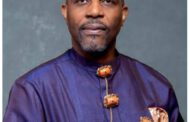Political scientist, strategist and former adviser to ex-president, Olusegun Obasanjo, Mr. Akin Osuntokun, has said the main reason Nigeria is unable to write its history is because of the Biafra civil war, which according to him, is a war of blame and people are unable to accept the truth about it.
Osuntokun who spoke on Monday in Lagos on the occasion of the 50th anniversary of the end of the civil war, argued that it was wrong for anyone to have believed that the January 15, 1966 military coup led by Major Chukwuma Kaduna Nzeogwu, was an Igbo coup.
He said Nzeogwu and his colleagues were working in the interest of Nigeria, not the Igbo, but noted, however, that the coup was badly managed.
“I don’t need to impress you by saying that Biafra is the central issue of Nigeria’s political history. And the attitude of Nigeria to Biafra will indicate the kind of nation we are, whether we have improved or become worse,” he said.
” I’m sure that people noted that recently, (T.Y) Danjuma was getting almost apologetic about his role in the civil war. He said he directed his junior officers not to kill those people. This attitude is different from what it used to be. He used to be celebratory about it. But there is nothing to celebrate about the war.
“If anybody is advocating for remedial actions about Biafra, it is not the Southeast you are helping, you are helping Nigeria. It is contradictory to think for instance, that in saying that the next Nigerian president should be an Igbo, you are doing the Igbo a favour. You are not.
“Today, the handshake across the Niger; in the relationship between the Southeast and Southwest, there is no trait that binds that relationship more meaningfully than the action of Adekunle Fajuyi. It shows you the meaning of powerful symbols.
“The defeat of Biafra is not to be celebrated or criminalised. And this is one of the reasons we are incapable of writing our history. Everybody can write about the American civil war today because the issues are clear. You could see the demarcation between right and wrong. How can anyone do wrong by fighting slavery? So it ended on a moral victory for Abraham Lincoln and his army, unlike our own. Our own is embedded on the philosophy of might is right, the law of the jungle.
“We can do things about it. We don’t need to be a portioning blames when we seek to improve ourselves. Again, let me tell you something, and I’m not pandering to you. People seem to miss one very crucial element about the coup of January 15, 1966. There is no way you can have a cast of those coup leaders and not presume they were acting on behalf of Nigeria, not on behalf of the Igbo. It is otherwise illogical. This idea of saying that it was an Igbo coup is wrong, it was not. It’s just that it was badly managed,” he said.
Osuntokun called for reconciliation, noting that the first step would be for everyone to own up to their mistakes so as to make it easy for the country to move forward.
He pointed out that although the story of the civil war is that of tragedy and deaths, there were still some acts of courage and solidarity which could be built upon.
“There are many issues about Nigeria’s history. Professor Pat Utomi has mentioned some of the things that will help the process of healing. The greatest statement made by General Yakubu Gowon was that there was no victor, no vanquished. But they didn’t follow through. If he did, we wouldn’t have been having this conference. The problem we have with this kind of conference is that we are clapping with one hand. As I said, I want to look at things less from the perspective of a portioning blames. Everyone has the elements of good and bad,” he said.
“Professor Utomi told us about Garba Wushishi who saved him from being killed in Gusau during the hostilities. There was a Yoruba man who was flogged in Surulere for shielding an Igbo person during the war. We should look for more of this. Nigeria needs to write it’s history. And the reason we cannot write it so far is the conflicting perspectives and the inability to accept the truth.
“Let those of us who are free give ourselves that task. In what ways can we write Nigeria’s history? What is militating against it is the civil war and the perceptions of it. It was not not a glorious war, it should be condemned through and through. Look at the series of events from 1966 to 1970, there is something insensitive about calling some people rebels. It is not a history of rebellion.
“We need to confront the ghost of this country. But I know you can’t convince people who have made up their minds. You can only try to say, I don’t see what you did as bad, you only made a mistake.
“Obviously, if the July 1966 coup was in response to the January coup, then it was a mistaken reaction. They did what they did because they believed that the January 15 coup was a conspiracy of the Igbo against them. But that’s a mistake. Now, if you now know that it was not Igbo conspiracy, you would not have done it. That’s the only meaningful way to proceed for Nigeria. We have to reach common grounds.”
Osuntokun is a Nigerian political scientist , strategist, researcher, administrator, journalist and writer, with experience in media …













